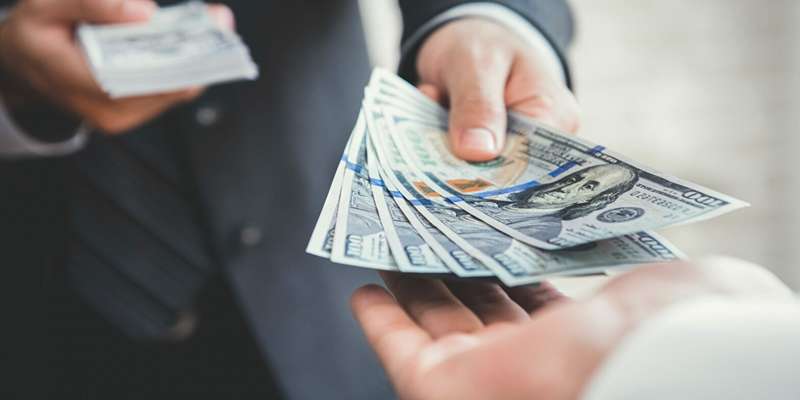Ready to free yourself from the burden of debt? It's no secret that getting out of debt can be difficult, but it doesn't have to be. With dedication and a focus on creating lasting financial habits, you can eliminate those pesky bills and start taking control of your financial life.
In this post, I'll show you how I took the steps necessary to become debt-free using debt discipline - giving me back my freedom and peace of mind!
What is your total debt today?
Your total debt today is the money you owe in loans, credit cards, and other outstanding payments. Knowing your total debt can help you determine how much debt discipline you need to exercise to achieve a debt-free life.
How I Ditched Debt: Debt Discipline

When I decided to become debt-free and ditch my debt, I implemented a few strategies that helped me stay on track and achieve my goal. Our four main strategies serve as a guide for those seeking to achieve financial independence.
1. Create a battle plan
Before you begin your journey to debt-free living, you must create a battle plan. This will include outlining your goals, creating a budget that works for you, and deciding how much money you need to pay off each month. Once your battle plan is in place, you can begin working towards accomplishing each step.
2. Set up automated payments
Automated payments are one of the most effective ways to stay on top of your debt. Setting up automated payments will ensure you get all the payments and help avoid late fees or damaging your credit score. Automated payments also allow you to better track your progress and see how much money you’re paying off each month.
3. Resist the temptation
It can be hard to resist the temptation of taking on more debt when trying to get out of it. To avoid this, stick to your budget and pay off your debts before making any unnecessary purchases. Additionally, find ways to reduce expenses to funnel more money toward debt repayment.
4. Reward yourself
Finally, it’s important to reward yourself for your hard work. When you reach milestones or pay off a debt, treat yourself with something small – like a movie night or lunch with friends. This will help keep you motivated and remind you that your hard work is worth it!
What steps did you take to reduce your debt?

I knew I had to make a conscious effort to reduce my debt, so my first step was developing a budget and tracking my spending. This allowed me to identify areas where I could cut back or eliminate certain expenses.
Once I had a better understanding of my financial situation, I looked for ways to increase my income by finding additional sources of income, such as freelance work or renting out a room in my house.
I also committed to tackling the debt with urgency and discipline. Any extra money I had was directed toward paying off my debt faster. For example, I would use any tax refunds, bonuses, gifts received, and other unexpected funds to pay down my debt rather than spending it on something else.
What resources or services did you use?
I used a combination of personal finance books, online resources, and services to help me become debt-free. I read multiple books on budgeting, debt repayment strategies, and articles from financial websites for guidance and advice. Additionally, I leveraged professional financial services like credit counseling to help me create an effective debt repayment plan.
A solid understanding of basic personal finance principles and a comprehensive understanding of my financial situation were essential components of my successful debt-ditching journey. With knowledge, discipline, and determination, I could take charge of my finances and achieve financial freedom.
The most important part of becoming debt-free was having the right mindset and attitude: Debt Discipline. Making conscious decisions about spending habits, budgeting, and saving was key to my success. I had to learn how to prioritize paying off debt and make tough choices about allocating funds, but it eventually paid off.
I also developed strategies for dealing with unexpected expenses without going into more debt. By setting up an emergency fund and sticking to it, I could avoid going into more debt.
It may have taken time and effort, but with determination and dedication, I was able to ditch my debt in just a few years. My advice? You can do it, too - you just need the right attitude and resources to get started!
What is your biggest tip for someone looking to get out of debt?
Our biggest advice for someone seeking to get out of debt is to practice debt discipline. This means crafting a budget that accounts for all expenses and prioritizing payment towards high-interest debt first.
It’s also important to prioritize larger payments, as this will help reduce the amount of interest you owe over time. Additionally, if possible, try to pay more than the minimum payment on each loan. This will allow you to pay off your debt faster and reduce the interest you owe in the long run.
Another key part of debt discipline is creating a plan for spending and saving. Track all expenses so you know how much money goes out each month. Also, create goals for yourself and be disciplined about meeting them.
Finally, use whatever extra cash you have to pay down your debt faster than spending it on non-essential items.
Practicing debt discipline is the best way to ditch debt for good. With consistent, mindful budgeting and a plan for saving and paying down debt, you can quickly turn your financial situation around!
How did you end up in debt?
I was living beyond my means, spending money on items I couldn’t afford and taking out high-interest loans. My debts were accumulating faster than I could pay them off, and it seemed like no matter how hard I tried, I kept falling further behind.
Sound familiar?
It was a difficult situation—I felt stuck in an endless cycle of debt, and it seemed like there was no way out. But then I discovered something that changed my life: Debt Discipline.
FAQs
How do you ditch debt?
The first step to ditching debt is to assess your current financial situation and create a budget. From there, you need to create a plan to pay off your debts as quickly and efficiently as possible.
To do this, you will need to be disciplined in terms of how much money you spend versus earning each month and make sure that you prioritize repayment of your debt above all else.
How do I get out of debt and stay out of debt?
Practicing good budgeting and financial management habits is the best way to stay out of debt. Monitor your spending, create a budget, track all your bills and payments, and save for the future.
Additionally, you should strive to increase your income by taking on extra jobs or working overtime. Finally, be mindful of how much credit you are taking on—avoid taking on more than you can handle.
How do I get my debts written off?
You may be eligible to have your debts written off in some circumstances. This is typically done through a process called debt settlement or debt negotiation.
Conclusion
In Conclusion, it isn’t easy to get out of debt. It takes discipline and motivation to make a plan and stick with it. However, by understanding your financial situation, tracking your expenses, budgeting wisely, looking for ways to increase your income, and finding creative solutions, you can succeed in ditching that debt!




